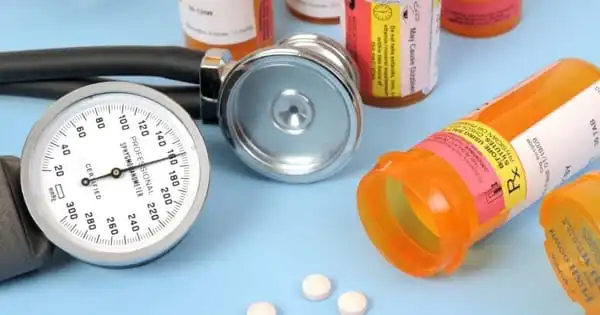Blood pressure is the force exerted by blood against the artery walls as the heart pumps blood. High blood pressure, also known as hypertension, occurs when that force becomes excessive and begins to harm the body. If left untreated, it will eventually cause heart and blood vessel damage.
Commonly prescribed blood pressure medications can have the opposite effect, raising blood pressure in a statistically significant percentage of patients. A new study by researchers at Yeshiva University’s Albert Einstein College of Medicine suggests that doctors could avoid this problem – and choose the best drugs for their patients – by measuring blood levels of the enzyme renin using a blood test that is becoming more widely available.
The study appears in the online edition of the American Journal of Hypertension.
“Our findings suggest that physicians should use renin levels to predict the most appropriate first drug for treating hypertensive patients,” says lead author Michael Alderman, M.D., an Einstein professor of epidemiology and population health and medicine. “This would improve the chances of achieving blood pressure control and reducing the need for patients to take additional antihypertensive medications.”
From 1981 to 1998, 945 patients were enrolled in a workplace antihypertensive treatment program in New York City. Their systolic blood pressure (SBP) was at least 140 mmHg. When the heart contracts, the amount of force that blood exerts on the walls of blood vessels is represented by SBP, the top number in the blood pressure reading. Prior to enrolling in the study, no patients were receiving treatment for high blood pressure.
Our findings suggest that physicians should use renin levels to predict the most appropriate first drug for treating hypertensive patients. This would improve the chances of achieving blood pressure control and reducing the need for patients to take additional antihypertensive medications.
Michael Alderman
Patients were given a single antihypertensive medication, either a diuretic or a calcium channel blocker (both of which lower blood volume), or a beta blocker or an ACE inhibitor (“R” drugs, which lower levels of renin, an enzyme secreted by the kidneys that plays a key role in maintaining blood pressure).
SBP and plasma renin activity (PRA) were measured at enrollment, and SBP was measured again one to three months later. Renin levels predicted which patients were most likely to respond favorably to either a R or a V drug. Furthermore, for both R and V drugs, the renin test was able to identify patients who were most likely to experience a “pressor response,” which is defined as a clinically significant increase in SBP of 10 mmHg or more.
In total, 7.7 percent of the patients demonstrated a pressor response. Patients with low renin levels who were given a beta blocker or an ACE inhibitor had the highest percentage of pressor responses (16%). (R drugs).

“Every clinician understands that there is variation in response to antihypertensive treatment, and that some patients will experience an increase in blood pressure,” says Dr. Alderman, a former president of the American Society of Hypertension. “The latter is commonly attributed to patients’ failure to take their medications or to a random event. However, the data show that it is not a random event; rather, it is the result of a mismatch between the patients’ renin status and the drug. We believe that using renin to predict the best treatment makes sense.”
According to Dr. Alderman, two groups of patients may benefit the most from having their renin levels measured: those who are being prescribed antihypertensive drugs for the first time and those who are taking multiple antihypertensive drugs when one or two would suffice. “With renin testing, you can more often control blood pressure with less therapy,” he adds.
PRA testing has long been used to help determine the underlying cause of a patient’s hypertension (i.e., whether it’s caused by constricted blood vessels, an excess of blood volume, or both), which can help guide therapy. “The issue was that the test was costly and difficult to perform accurately,” Dr. Alderman explains. “However, the methodology for measuring PRA is getting better and the test is becoming more widely available.”
Morris J. Brown, M.D., professor of clinical pharmacology at the University of Cambridge School of Medicine in England, wrote in an accompanying editorial, “Renin measurement may play a role in detecting extremes and reaching rational treatment in those who are not controlled by standard combination [drug therapy]. Many hormones are measured on less reason and evidence than plasma renin, the “oldest” of them all; its place in routine hypertension management has finally arrived.”





